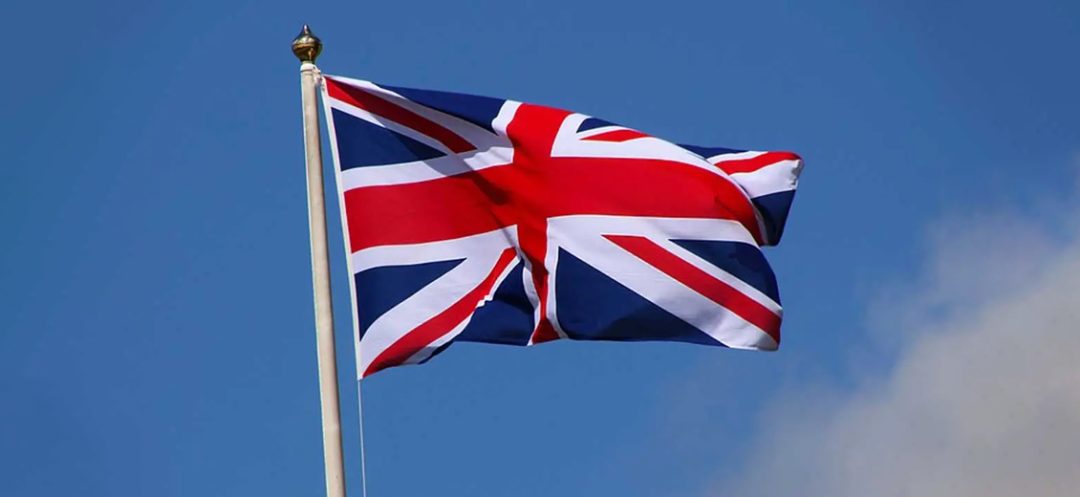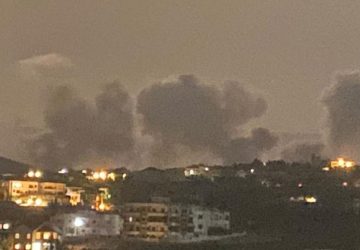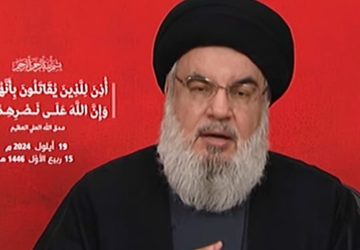Listen to the article
The Middle East is now the stage for heightened tensions, pointing to an ever-increasing possibility of war. Indeed, the friction between Israel and Iran, along with its proxies such as Hezbollah, has reached unprecedented levels. In this particularly volatile environment, the role of major global diplomatic powers, especially that of the United Kingdom, has become crucial. London is trying to play a decisive role in de-escalating tensions between Lebanon and Israel, while also maintaining an active military presence in the region. This is not just a spontaneous intervention but a testament to a continuous and strategic involvement in this area over several years. Thus, a crucial question arises: how do the UK’s diplomatic and military interventions influence the dynamics of peace and conflict in the Middle East, and to what extent can they genuinely contribute to lasting stabilization in the region?
For many years, the UK has been trying to expand its strategic role in the Middle East, going beyond a mere coordinated action plan. Its steady pro-Israel stance reflects a historical continuity that endures despite shifts between Conservative and Labour administrations. This continuity is mostly evident in the close military collaboration, which includes leveraging British military bases to support Israeli interests. Most importantly, the UK maintains numerous key military bases in the region, such as Akrotiri and Dhekelia in Cyprus, as well as facilities in Oman, Bahrain, and other locations. These bases, especially those in Cyprus, house advanced equipment, including state-of-the-art fighter jets like the Typhoon and the F-35, which are regularly deployed. Additionally, these military spots are equipped with listening posts, bombers, missiles, ships, and the aircraft carrier HMS Diamond, bolstering the UK’s capacity for intervention in the region.
Furthermore, the UK has actively deployed these resources in the region. Since the beginning of 2024, British strikes on Yemeni Houthi forces – conducted in collaboration with the United States – have intensified, marking a significant strategic success by undermining this pro-Iranian faction’s ability to target American and British ships in international waters. Additionally, the UK played a crucial role in defending against the Iranian attack of over 400 missiles on Israel on April 13. The Royal Air Force, with the help of its Typhoons from bases in Cyprus, has intercepted over 120 missiles over Lebanese, Syrian, Jordanian, and Iraqi territories. This achievement was made possible through cooperation with American, Israeli, and, to a lesser extent, French forces.
A primary focus of British Defense Minister John Healey’s visit to Tel Aviv, where he met with Israeli Defense Minister Yoav Gallant, is to address this issue. The visit follows closely on the heels of Healey and British Foreign Secretary David Lammy’s trip to Beirut, where they urged Lebanese authorities to pursue de-escalation and to persuade Hezbollah to avoid triggering a full-scale war. However, some observers believe that Lammy’s absence from the trip to Israel with Healey suggests that the discussions were likely more focused on military rather than political matters, probably centered on the logistical coordination needed to counter potential Iranian attacks on Israel.
Finally, the UK’s role in the current crisis—and more broadly in the region—reflects the distinctive and effective work of MI6, one of the world’s most prominent intelligence agencies, alongside the CIA and Mossad. This role was notably highlighted in a recent article in the Daily Telegraph, which reported that British intelligence operations are embedded in several Middle Eastern countries, including those where Iranian proxies are active, such as Syria, Lebanon, Iran, Iraq, and Yemen. These services are reported to have infiltrated various governments and non-state military organizations, such as Hezbollah, and to operate highly advanced listening posts. This likely accounts for why the UK was the first major Western country to elevate its travel warning for Lebanon to the highest level and to advise its citizens and residents to leave the country immediately.
In this context, a document sent to relevant citizens and residents, specified that the Foreign Office’s instructions were based on information from MI6. Additionally, The Guardian reports that the UK has stepped up its logistical preparations for a possible evacuation of its citizens from Lebanon.
Ultimately, the UK’s role in the Middle East reflects a complex and multidimensional strategy that blends diplomacy, military intervention, and intelligence operations. Through its ongoing commitment and strategic alliances, London has positioned itself as a key regional player, able to influence conflict dynamics and maintain a substantial military presence. Recent military actions and diplomatic efforts highlight Britain’s determination to protect its interests and confront the challenges posed by pro-Iranian factions and Israeli-Arab tensions.
The unveiling of MI6’s ongoing activities confirms the depth and effectiveness of British networks in the region, further highlighting the UK’s role as a major power on the international stage. This integrated approach – though occasionally criticized- illustrates the UK’s ability to navigate a particularly volatile geopolitical landscape and play a decisive role in managing conflicts and ensuring security in the Middle East.





